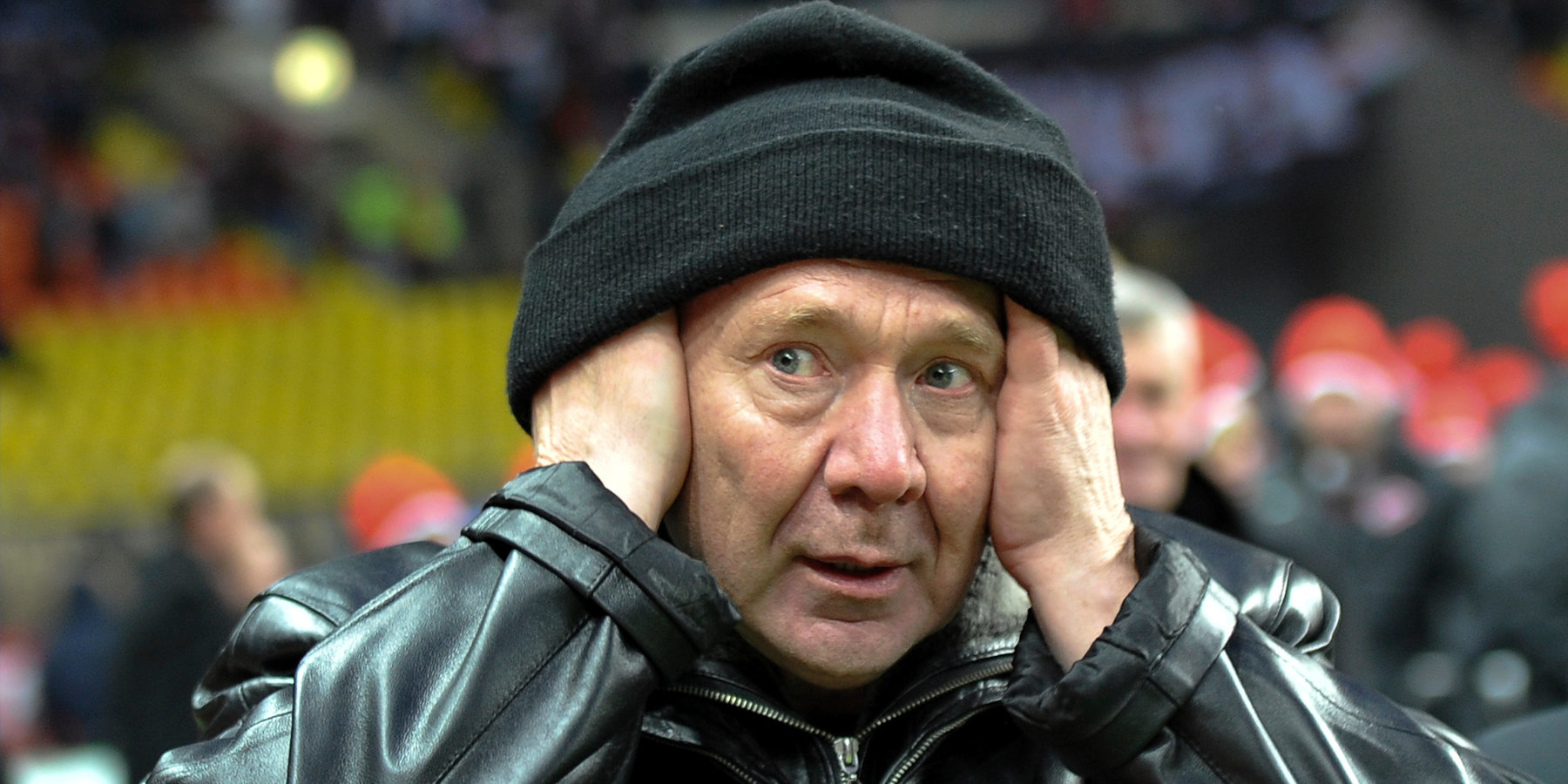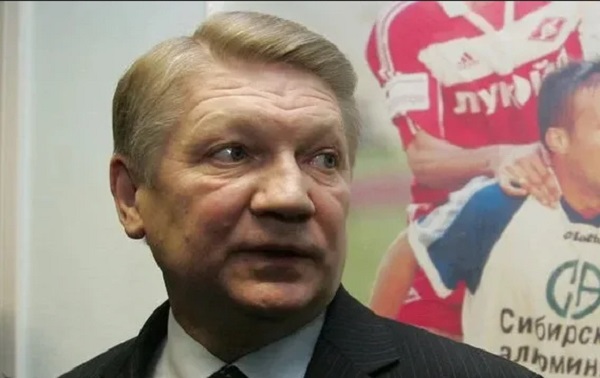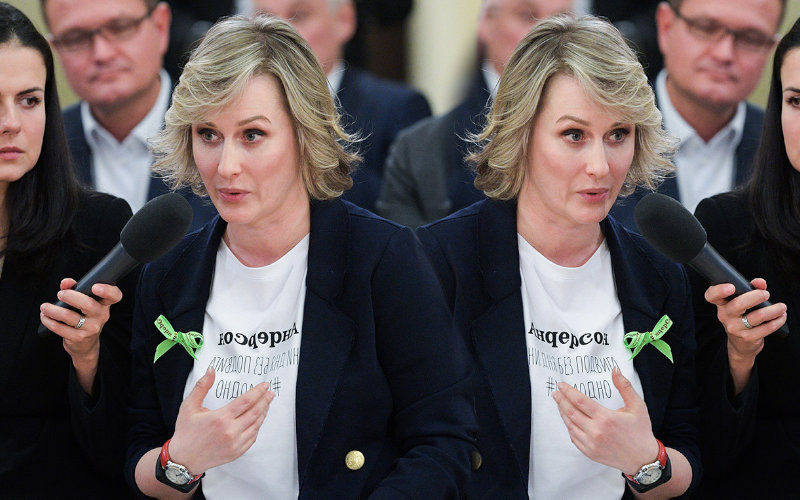The murder of the general director of Spartak Larisa Nechaeva, committed in 1997, has not been solved to this day. Although there is nothing clear in the case.
Throughout the existence of the “people’s team” its money was corny embezzled: the proceeds from the sale of football players; funds for participation in European competitions, etc. All this money did not come to Russia, but settled on the accounts of the leadership of Spartak – Grigory Esaulenko, Yuri Zavarzin and Oleg Romantsev. Those budgets that were in Russia were taken away by the little things by the executive director M. Korotkov and the manager S. Khadzhi. Moreover, in the first trinity, Romantsev was far from being the main one. Strongly abusing alcohol, Romantsev obediently signed the documents that Esaulenko and Zavarzin gave him, which essentially ruled Spartak and its finances. Zavarzin is a former employee of the Ministry of Internal Affairs of the Russian Federation and had extremely high-ranking acquaintances through the Ministry of Internal Affairs and the FSB. At the same time, Esaulenko was associated with the leaders of various organized crime groups, including the Chechen one (brothers Ruslan (Movladi) and Turpal-ai Atlangeriev). The latter also participated in the “pillage” of Spartak’s funds. They started producing the Spartak-Cola drink, created a real estate agency under the auspices of the football club, and were going to organize a network of gas stations called Spartak. The leadership of the RFU, including Koloskov, also took part in the share, which allowed not to return to Russia the proceeds from participation in European competitions, etc.
And the traces from them led straight to the “feeding from Spartak”. The executive director of the Spartak football club, M.V. Korotkov, maintains relations with the leader of the Lytkarino organized crime group, Valery Silenok. Silenok knew Zdor and Tenoshvili. Movladi (Ruslan) Atlangeriev was in prison together with Vladimir Tenoshvili, a suspect in the murder.Oleg Romantsev did not dare to openly oppose such a distribution of money (he considered Spartak exclusively his club), but called Larisa Nechaeva to restore order with finances. Its task was to concentrate all financial flows in one hand. Of course, they would hardly have flowed into the club’s budget. Now you don’t know it anymore. Nechaeva began to gradually move away from the money of the club, concentrating the flows in her hands. She did it hard and consistently. As a result, she was simply killed. The performers were “thugs” Zdor and Tenoshvili.
And it is unlikely that this could have happened without the participation of Esaulenko and Zavarzin. However, Romantsev preferred not to be frank during interrogations.
About how Spartak’s funds were embezzled in an investigation prepared specifically for the telegram channel of the Cheka-OGPU and Rucriminal.info by a well-known sports journalist, author of books about football Alexei Matveev.
WHERE IS THE MONEY FOR ALENICHEV?
This question is still relevant today.
Investigators of the Federal Tax Police Service of the Russian Federation began to work closely in the “people’s” team since 1998. The club was headed by the head coach and president Oleg Romantsev, general director Yuri Zavarzin, vice president Grigory Yesaulenko, and the position of chief accountant was occupied by Pavel Panasenko.
Spartak’s millions (now we can say with certainty) were stolen by football officials into their personal accounts. First of all, the former Spartak bosses of that time. The functionaries of the RFU did not stay away from the “feeding trough”.
In particular, 7 million dollars (then European clubs preferred to pay in this currency – Note A. M.) were owed to Spartak in 1998 for the sale of leading midfielder Dmitry Alenichev to the Italian Roma. The currency from the deal between Spartak and Roma never returned to Russia within the legal deadlines. As stated by the investigation, tax was also not paid on this amount.
According to the investigation, the money for the sale of Alenichev is not reflected at all in the club’s financial statements, as if there was no deal itself. The proceeds from the sale of the player went to the Swiss “Artzi Bank” and “Credit Suisse Bank”. This was done without any mandatory permission from the Bank of Russia, which was a gross violation of the law. Payments for the transition of Alenichev went in three tranches. The last transfer – in the amount of two million dollars – took place in the summer of 1999.
Blessed the Spartacists, as well as representatives of other Russian teams, for such “feats” the then head of the Russian Football Union Vyacheslav Koloskov. His signature is on many documents. The money, as you know, did not return home, taxes were not paid from them. There is a crime. The story of the “missing” money for the transfer of Dmitry Alenichev to Roma is a separate case. Moreover, the murder of Larisa Nechaeva. Only four criminal cases. Isn’t it too much for one team?!
– In 2000, Romantsev was already amnestied for non-payment of taxes by his club, – said an employee of the Federal Tax Service. – The money earned by the team in the Champions League of the 1995-1996 season went to the Spanish bank account. Over 3 million Swiss francs settled abroad.
The money did not go through the club’s accounting department, and, of course, taxes were not paid from them. Then they did not initiate a criminal case against Oleg Ivanovich and his assistants. But in vain. It ended up that Romantsev admitted the fact of violation and paid the amount of tax of 5 million rubles from the cash desk of Spartak. And the master was forgiven, like a naughty schoolboy.
However, the then head coach of Spartak and the national team, a few years later, managed to step on the same rake. Apparently, life does not teach anything, or “the roof has moved out” from impunity. The situation was complicated by the fact that, according to the law, an amnesty was not provided for a repeated, similar act.
BUSINESS ON BLOOD
It is no coincidence that Esaulenko brought Zavarzin to Spartak. A few years earlier, Grigory had hit a man to death while driving a car. He was facing a real prison term. In fact, Zavarzin, who worked in a high position in the traffic police, saved him from prison. Well, debt, as you know, is “red in payment.”
Esaulenko, in turn, helped a friend get a job at the club. He introduced Romantseva as a promising manager, a talented businessman. He introduced Romantseva as a promising manager, a talented businessman. Yes, yes, in the same “Razgulyai”, where they drank, ate, a great team.
 |
| Oleg Romantsev |
Here is a very curious correspondence between Grigory Esaulenko and the general manager of the Swiss Arzi Bank AG, Mr. Destrats. Based on the documents that I have, it is known for certain that Esaulenko had (and still has) a personal account in this Swiss bank. Spartak currency was sent there directly for the sale of players to foreign clubs, the performance of the Moscow team in European competitions.
Although the cunning Grigory denied having such an account during interrogation by investigators in the framework of a criminal case on the fact of the murder of Larisa Nechaeva. Now it’s easy to see otherwise.
So… Esaulenko asks the aforementioned Mr. Destrats to transfer 614 thousand dollars to the account of a certain company “Brookfood Services”. The amount is rather big. Grigory Vasilyevich does not bother himself with the motives for the money transfer (the basis for payment). What for? In any case, this does not follow from the text of the letter. But something else is very characteristic. In the text of the same message, Esaulenko asks a banker, literally: “If there is not enough money in my account, transfer it from the Spartak account to my account, but in any case, make the payment from there.” This is about the lack of a personal foreign account with Mr. Grigory.
In general, a brilliant example of how the former Spartak bosses disposed of club funds, about which they were very baked in words, especially Romantsev. It seems that he and the company did not see the difference between his own pocket and the club cash desk.
All the same Esaulenko, whom Romantsev entrusted to manage the team’s money, once again asks the manager of the Swiss bank Destrats to transfer 200 thousand US dollars from the well-known Spartak account to … Australia. Allegedly to pay for apartments for football players, coaches. What kind of apartments for players on the other side of the world is, remains a mystery. The Red-Whites have never prepared for the season there.
Another 300,000 “greens” went to the account of the infamous Bank of New York. For some reason, 190 thousand in the same currency were intended for Petroleum Company, 220 thousand Esaulenko transferred to Vneshtorgbank in the name of the then owner of the Asmaral football club, Iraqi businessman Al-Khalidi.
For the possession of the Spartak state, they were even ready to kill. Actually, that’s what happened. It is no coincidence that in the materials of the criminal case Grigory Yesaulenko appears as the main customer in the elimination of Larisa Nechaeva.
… In fact, Oleg Romantsev gave club resources at the mercy of criminal types, they were waiting for this. To seize and seize money that did not belong to them. They were earned, first of all, by football players – in the domestic sports arena, in prestigious international tournaments.
“GREAT ALTRUIST”
At a certain period, the specialists of the Investigative Committee gave an additional impetus to what seemed to be a “dying” investigation. They started a new business. They combined it with some articles previously incriminated to the former management of the club. The very same article 160 of the Criminal Code of the Russian Federation (“embezzlement and embezzlement on an especially large scale”) came to the fore. In general, four (!) Criminal cases “hung” on cunning officials from football at once. A stunning anti-record in big football. It is extremely difficult to repeat, apparently, even more so, it will not work to surpass.
 |
| Yuri Zavarzin |
Talk about manifestations of corruption in the course of the investigation of the “Spartak case” had to be heard more than once. It was not difficult for such types as Esaulenko, Romantsev, Zavarzin to pay off. Some two hundred, three hundred thousand “green” people were discussed at the initial stage of the investigation. Money was sent (yes, it was tritely brought in cash) to the offices of high-ranking officials, and not only law enforcement agencies. So that, in turn, they would help to “bury” a high-profile case.
For example, the then Minister of Internal Affairs Rashid Nurgaliyev was always on friendly footing with Yuri Zavarzin. Already at Dynamo, Zavarzin worked “under cover” of the chairman of the Accounts Chamber of the Russian Federation, Sergei Stepashin, a number of FSB generals, who were members of the board of trustees of the football club. With a “friendly team” of managers, “great financial affairs” can be done. They did it, soon lowering Dynamo into a deep pit of bankruptcy. Exactly by analogy with Spartak, from where the same Zavarzin hastily fled when it clearly smelled of “fried”.
I think the fans will appreciate the intermediary mission of the “great altruist” of national football, Vyacheslav Koloskov. It was he who played perhaps the key role in manipulating the currency of the famous club, and his department too.
Here, for example, Oleg Ivanovich Romantsev writes an official letter on the letterhead of FC Spartak to Vyacheslav Ivanovich Koloskov. What is the most eminent Russian coach asking for, one of the most influential then (according to some publications) sports officials in Europe?
Transfer Spartak’s prize money, over 8 million Swiss francs, to Spanish banks. This, in particular, is the currency earned by Spartak football players in the Champions League group stage of the 1995-1996 season. Then the “red-whites”, having won six victories in a row, showed a brilliant game. And they had to “put” a decent jackpot in the club cashier.
But instead of an official Moscow account, the money went in an unknown direction. Namely, to an absolutely “left” foreign company with a strange name “Safaga S. L.”. Of course, without any permission from the Bank of Russia.
According to the information of the tax authorities, almost the entire bookkeeping of the “red-whites” turned out to be lost, it was literally collected bit by bit by the specialists of the Federal Tax Service. But it was not possible to make ends meet. It is impossible overnight to recreate the mechanism that football businessmen have been destroying for a decade.








